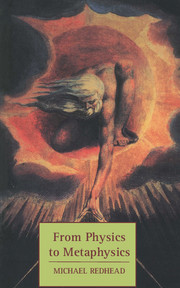3 - Experimental Metaphysics
Published online by Cambridge University Press: 05 August 2012
Summary
Is it possible to bring experiments to bear on metaphysical theses such as realism? In recent developments in quantum mechanics particularly associated with the late John Bell it has been claimed that a certain type of realism, what is known as local realism, has indeed been refuted by a series of experiments, culminating in those carried out by Alain Aspect and his collaborators in Paris in 1982. Crudely local realism means in this context that atomic and subatomic entities, the subject matter of quantum mechanics, possess definite sharp values for all their attributes at all times, and, in addition, these attributes cannot be affected instantaneously by operations such as measurements performed on other microentities at different spatial locations from the one whose attributes are in question. In other words, realism is supplemented with a denial of the possibility of instantaneous action-at-a-distance. Now relativity theory, the other great pillar of modern theoretical physics, is standardly understood as committed to such a denial. So an experimental refutation of local realism would force us to give up either locality (the no-instantaneous-action-at-a-distance principle) or the realist thesis itself. The first horn of this dilemma is closed off by appeal to relativity theory, and so the conclusion of the argument would appear to be the refutation of realism.
- Type
- Chapter
- Information
- From Physics to Metaphysics , pp. 41 - 62Publisher: Cambridge University PressPrint publication year: 1995



